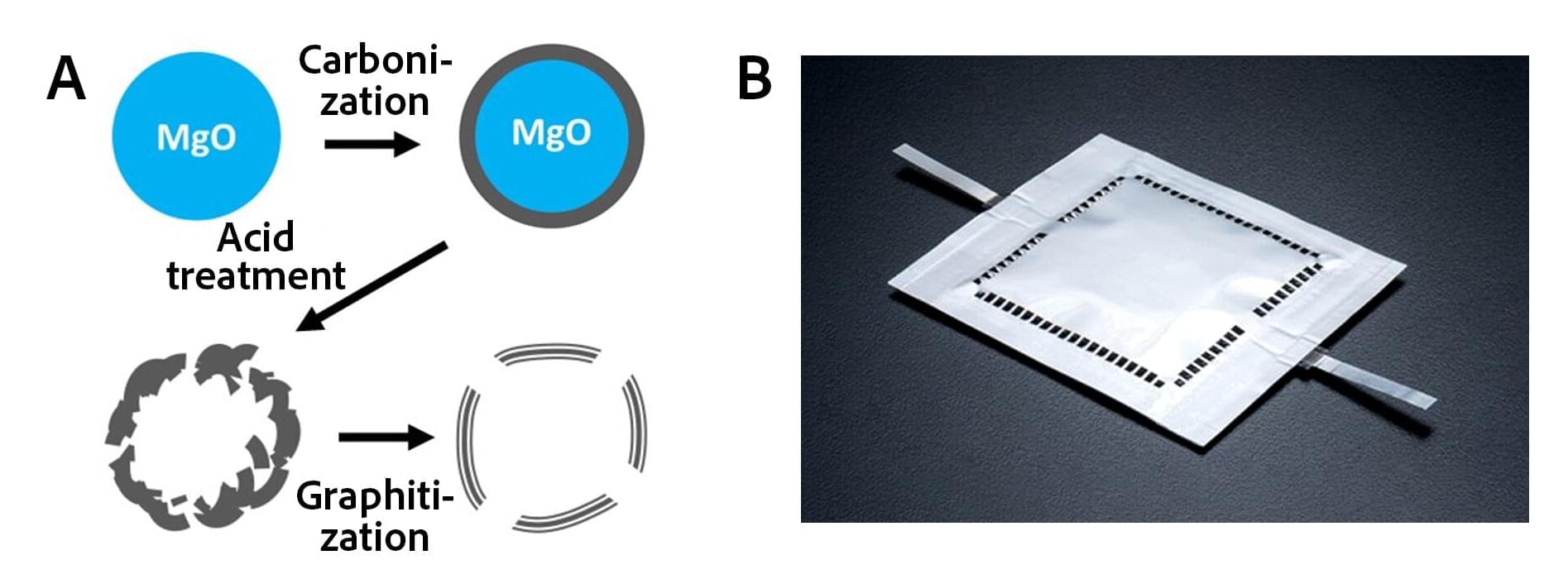A joint research team from NIMS and Toyo Tanso has developed a carbon electrode that enables stable operation of a 1-Wh-class stacked lithium-air battery, achieving higher output, longer life and scalability simultaneously.
The team created this electrode by combining manufacturing technology that Toyo Tanso developed for its “CNovel” porous carbon product with proprietary technology NIMS developed to fabricate self-standing carbon membranes.
This combination made it possible to scale up the battery cell size—a significant step toward practical, industrial-scale lithium-air batteries. The research was published online in Cell Reports Physical Science on September 18, 2025.







